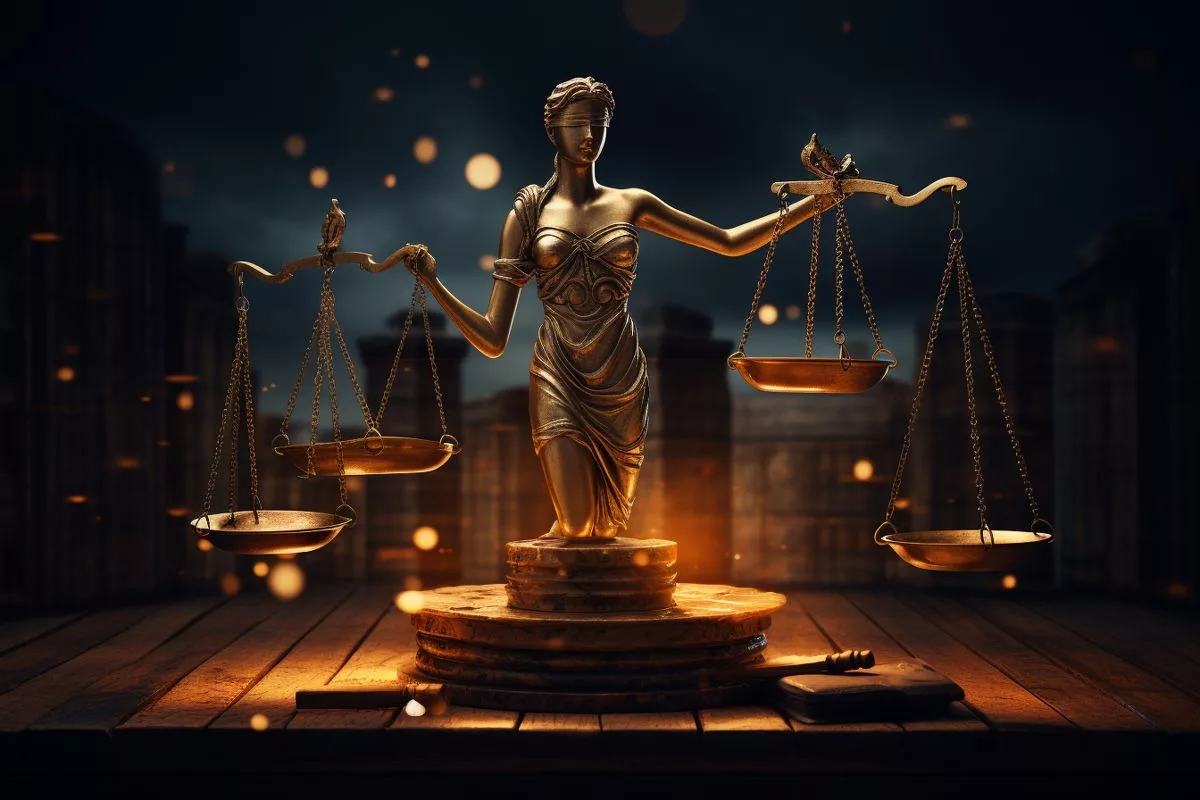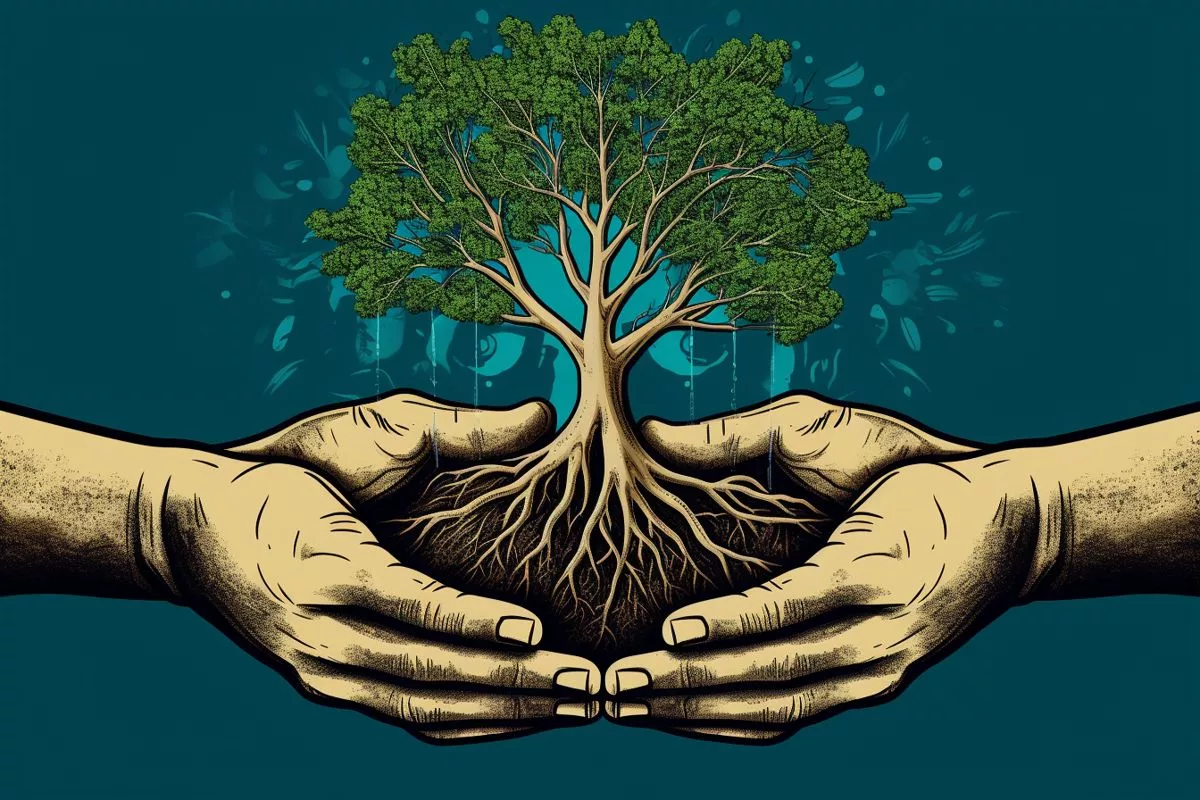In a joint session of the South African Parliament’s two houses, reports were presented on the moral behavior of parliamentarians and the importance of preserving public trust. Grievances were raised against three influential political figures, including Ms. Dipuo Peters, who was found guilty of violating ethical conduct and suspended from parliamentary debates and related functions for one term. The session emphasized the need for transparency and ethical conduct among Parliament members, reminding them of the heavy responsibilities attached to public office.
A Critical Examination of Moral Behavior Within South Africa’s Parliament
The joint session of the South African Parliament’s two houses accommodated reports from a combined ethics and members’ interests committee. The reports provided an interesting glimpse into the moral behavior of parliamentarians and the essentiality of preserving public faith. The session highlighted the key relationship between politics and ethics and served as a reminder of the heavy responsibilities attached to public office.
In the vibrant cityscape of Cape Town, the South African Parliament’s two houses assemble. A notable occurrence took place on Tuesday, 28th November 2023, during a joint session that incorporated both virtual and physical attendance. The National Assembly (NA) accommodated the reports from a combined ethics and members’ interests committee during this session. These reports, based on grievances against distinguished political individuals, provided an interesting glimpse into the moral behavior of parliamentarians and the essentiality of preserving public faith.
These parliamentary proceedings began with grievances against three influential political characters – Ms. Dipuo Peters, the past Minister of Transport; Mr. Floyd Shivambu; and Mr. Bheki Cele, the present Minister of Police. Each grievance contained a common element of purported violations against the Code of Ethical Conduct and Disclosure of Members’ Interests.
The Dipuo Peters Case: From Transit to Morality
Initially, the focus shifted onto Ms. Dipuo Peters due to a complaint filed by Mr. Abdurrazack Achmat and others, including a non-profit entity, #UniteBehind. They alleged that Ms. Peters, during her time as Transport Minister, neglected her responsibilities by not appointing a Group CEO for the Passenger Rail Agency of South Africa (PRASA). This neglect led to a significant financial loss.
Further, under Ms. Peters’ direction, the PRASA Board was dissolved, which stirred controversy mainly because of the Board’s uncovering of an alarming amount of wasteful spending at PRASA. Her supposed use of PRASA buses for ANC activities and her impact on procurement procedures added to the complaints’ severity.
After thorough examination, the committee declared Ms. Peters guilty of violating numerous elements of the Code of Ethical Conduct. Her actions were deemed to have eroded public trust, and she appeared to prioritize her interests above the public’s, contrary to her position’s ethical obligations. The consequence? Suspension from all parliamentary debates, sittings, committee gatherings, and related functions for one term.
Mr Shivambu’s Tale: The VBS Controversy
Mr. Floyd Shivambu was the subsequent person to be examined by the committee, with complaints tracing back to 2018. The notorious Venda Mutual Bank (VBS) controversy, a subject of widespread public discourse, was central to these complaints. The committee looked into claims that Mr. Shivambu and his party, the Economic Freedom Fighters (EFF), financially benefited from this controversy.
The complainants argued that Mr. Shivambu did not reveal financial advantages he received from certain entities and individuals. The committee, during its investigation, found proof of a monetary transfer of R180,000 from a company, SgamekaProjects, to Mr. Shivambu. As a result, he was found guilty of breaching the Code’s rules regarding financial interest disclosure. The suggested punishment? A cutback of nine days’ worth of salary.
Mr Bheki Cele’s Examination: The Police Minister’s Ordeal
Mr. Bheki Cele, Minister of Police, was the recipient of the final complaint. The allegations originated from Mr. Ian Cameron, Director of the non-profit organization Community Safety at Action Society, and revolved around Mr. Cele’s flare-up during a committee meeting in July 2022. Cameron had questioned Mr. Cele about his inability to safeguard certain communities in the Western Cape, which provoked a hostile response from Mr. Cele, leading to Cameron’s expulsion from the venue.
Although Mr. Cele’s defense argued that Cameron’s actions were inflammatory and disruptive, the committee, after studying video footage, declared Mr. Cele guilty of breaching the Code’s regulations. The committee suggested that Mr. Cele tender an apology in the House for his behavior.
The Significance of Absolute Transparency
In addition to these high-profile instances, the committee also tackled the issue of non-disclosure of interests. It proposed that Ms. Nomsa Kubheka be penalized an amount equivalent to 20 days salary for failing to submit her disclosure forms for 2022.
As the afternoon sessions concluded, the House accepted all the reports underlining the democratic importance of ethical conduct among Parliament members. This session highlighted the key relationship between politics and ethics and served as a reminder of the heavy responsibilities attached to public office. In this intricate panorama of political strategy and ethical discussions, one enduring message resonated: the credibility of Parliament must be preserved to maintain public trust and confidence.
What was the purpose of the joint session of South Africa’s Parliament?
The joint session of South Africa’s Parliament was held to present reports on the moral behavior of parliamentarians and emphasize the importance of preserving public trust.
Who were the three influential political figures that were the subject of grievances?
The three influential political figures who were the subject of grievances were Ms. Dipuo Peters, Mr. Floyd Shivambu, and Mr. Bheki Cele.
What was the outcome of the grievance against Ms. Dipuo Peters?
Ms. Dipuo Peters was found guilty of violating ethical conduct and was suspended from all parliamentary debates, sittings, committee gatherings, and related functions for one term.
What were the grievances against Mr. Floyd Shivambu?
The grievances against Mr. Floyd Shivambu centered around the Venda Mutual Bank (VBS) controversy, with claims that he and his party, the Economic Freedom Fighters (EFF), financially benefited from it. He was found guilty of breaching the Code’s rules regarding financial interest disclosure and was suggested to have a cutback of nine days’ worth of salary.
What was Mr. Bheki Cele’s examination about?
The examination of Mr. Bheki Cele was about his aggressive response to Mr. Ian Cameron’s questioning about his inability to safeguard certain communities in the Western Cape, leading to Cameron’s expulsion from the venue. He was found guilty of breaching the Code’s regulations and was suggested to tender an apology in the House for his behavior.
What was the committee’s proposal regarding non-disclosure of interests?
The committee proposed that Ms. Nomsa Kubheka be penalized an amount equivalent to 20 days salary for failing to submit her disclosure forms for 2022.
Additional information: The joint session highlighted the importance of transparency and ethical conduct among Parliament members, reminding them of the heavy responsibilities attached to public office. The credibility of Parliament must be preserved to maintain public trust and confidence.








